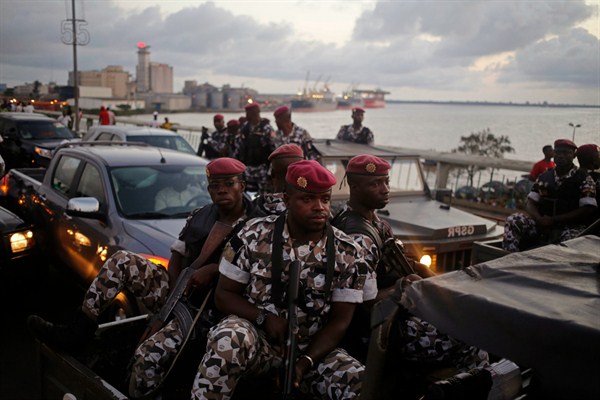On Jan. 6, soldiers in Bouake—Cote d’Ivoire’s second-largest city and the former rebel capital during the country’s civil war in the 2000s—left their barracks, firing their weapons into the air. They quickly seized control of Bouake’s main streets and announced a mutiny, the latest in a string of them in recent years in Cote d’Ivoire. Within a day, soldiers throughout the country joined the mutineers, including in Abidjan, Cote d’Ivoire’s largest city and commercial capital, where gunfire was reported at the army headquarters.
Although the government and soldiers claim to have reached a deal to end it, the standoff proved that, six years after a post-election conflict claimed at least 3,000 lives and resulted in the creation of a new Ivoirian army, the goal of a cohesive and disciplined fighting force is still far from reality.
The mutineers were former rebels claiming bonuses promised but never delivered in exchange for backing President Alassane Ouattara during the 2011 crisis, according to Arthur Banga, a professor of military history and international relations at Felix Houphouet-Boigny University in Abidjan. The mutineers’ demands also include salary increases and a quicker promotion schedule.

